#QualityControl
Subaru's Sales Success Comes With a Big Side of Trouble
Subaru’s sales in the United States effectively tripled in the past decade, making it the most important market for the brand by a wide margin. However, the automaker has had to expend quite a bit of energy in its home country of Japan to address recalls and regulatory scandals over the last few years.
While the duality hasn’t caused issues on a global scale, many observers wonder how long its good fortune will last. In America, Subaru is a feel-good brand that uses love as a core marketing concept to improve sales. In Japan, it has become synonymous with overworking employees lacking compensation, regulatory scandals, sudden work stoppages, and recalls. Many believe it’s only a matter of time before Subaru of America will have to contend with Japan’s issues, and evidence exists that problems are already beginning to surface in the West.
Nissan Cites Staffing Issues as Cause for Final Inspection Snafu, Subaru Says Sorry
On Friday, Nissan Motor Co. blamed a shortage of key staff for improper final inspection procedures at Japanese assembly plants. The problem, which amounts to little more than not having having a specially certified technician give each vehicle a final once-over, has forced the automaker to recall 1.2 million vehicles within Japan this year. As the mandate applies only to vehicles sold on the nation’s domestic market, no exports to North America are affected.
However, that hasn’t stopped Japan’s government from coming down hard on the company for its bureaucratic misstep. After discovering that uncertified inspectors were signing off on vehicle checks required by the transport ministry, Nissan has been incredibly apologetic. It even launched a full-scale investigation, finding that “nonconforming final inspections” were commonplace by the 1990s at the plants, and could even have existed at one factory since 1979.
Nissan Back On Track in Japan, Resumes Vehicle Production
Nissan is resuming production at five of its domestic plants this Tuesday after Japan’s transport ministry finally approved changes to the improper final-inspection procedures that forced a major vehicle recall in October. The issue involved final checks being conducted by uncertified technicians, a procedure only mandated for vehicles sold within the brand’s home country of Japan. Exported vehicles aren’t subjected to it and, so far as we know, didn’t have any problems for having forgone the inspection.
However, JDM production has been suspended since October 19th and Nissan has scrambled to recall 1.2 million vehicles after being required to re-inspect everything built for the Japanese market over the last three years. That’s a large penalty for what amounts to little more than having the wrong guy eyeball a car as it rolls off the assembly line.
Nissan and Subaru Faulted for Decades of Improper Inspection Procedures
Japan appears to be having a problem with its quality control. Nissan Group is conducting updated inspection procedures after details emerged that it allowed uncertified employees to conduct final vehicle checks. However, the Japanese government continues to find issues with the automaker’s practices, forcing it to temporarily suspend new vehicle registrations.
Early reports from an external investigation commissioned by Nissan suggest the certification problem may have begun in 1979.
Subaru faces a similar plight. With Nissan’s inspection issue looming larger than anticipated, Subaru has admitted to following improper procedures for its domestic products. On Friday, the carmaker said final inspections at its main plant have occasionally been handled by employees not listed as certified technicians. The problem has persisted for more than 30 years, according to the manufacturer.
Enough With the Negatives: What Do the Auto Industry's Good Panel Gaps Look Like?
We’re auto writers. By our very nature, we’re irritable complainers, apt to harp and carp. Yet while we enjoy a humorous headline, needling readers, and looking far into the future, you’ll more likely find us sharing photos of horrendous automotive disappointments on TTAC’s digital HQ, Slack.
Sometimes the disappointments are obvious and consequently publicized. Departed managing editor Mark Stevenson, for example, profiled a 2015 Ford Edge Titanium’s build issues in late 2015.
Panel gaps are one means of quantifying perceived quality. Industry observers and many customers use perceived quality to make educated guesses about future real quality. If a vehicle appears to be built well, surely it is. If a vehicle appears to be built poorly, how much worse is the quality of assembly under the skin?
Piston Slap: A Stern Talkin' To About OEM Headlamps?
Sajeev writes:
I created Piston Slap as a way to bring the diverse knowledge base of your favorite car forum to the autoblogosphere with easy to digest weekly posts. The only problem is when a mistake gets published, the thread never comes back to page one with its correction.
I screwed up, so here I’ll do my best to fix it: I was mistaken about aftermarket DOT/SAE approved lights being just as good or better than original-equipment factory parts. Some of the aftermarket parts are promoted as being “CAPA certified” (Certified Automotive Parts Association), but as we shall see, that doesn’t mean what it sounds like, and it doesn’t help with our reader’s query that started the conversation in the first place. As seen elsewhere, parts not up to spec can have tragic consequences with little recourse for victims.
Tesla Owner Finds Torn A-Pillar on Freshly Delivered Model S
Imagine you’ve just taken delivery of a car with a price tag of $127,100. You’re leasing it for a monthly sum that could pay for a nice two-bedroom apartment in most North American cities.
The A-pillar is torn. Split. Structurally compromised. And it was delivered that way from the factory.
According to one Toronto-area man, that’s the situation he’s facing with a brand-new Tesla Model S 90D.
QOTD: Where Do You Want Them To Skimp?
You know how I know that things are getting pretty good in the automotive world? Because we’ve gone from a world where new cars lock their brakes and ignite their gas tanks and delaminate their tires with murderous yet monotonous regularity to a world where people get authentically upset when the fake stitching on their dashboard doesn’t look convincing enough. Our grandparents expected to have to grease their axles every thousand miles and rebuild their engines every 50,000, but we’ve turned into princesses whose posteriors are perfectly primed to detect the mere suggestion of a spherical inconsistency ten mattresses down.
I’m not just talking about the boss man here at TTAC being triggered by a wobbly hood release. I’ve been complaining about the paint and carpet in my Accord for three years now. Prior to that, I recall being very disappointed in the fact that one of my Phaetons only had the stamped-steel parallelogram trunk arms instead of the forged Campagnolo pieces that my other car had. It kept me up at night. I didn’t like opening my trunk in any sort of elevated company.
Of course, we’re not so quick to complain about getting 270 horsepower in the Accord that used to come with 110, or the five LCD screens that replaced plain mechanical gauges, or the vastly better NVH isolation. We want Rolls-Royce interiors and W126 mechanicals at Kia Rio price points. That’s because we now live in a consumer culture where we define ourselves by what we consume, not by what we produce. And it’s also because we’re kind of stupid about how the automotive sausage is made.
The truth of the matter is that all modern automakers skimp. They skimp all over the place, on all sorts of things, and they hope to heaven that you either don’t notice or don’t care. This is true whether we’re talking about the Chevy Sonic or the Bentley Mulsanne. You just have to pick and choose where you’re willing to have the skimping take place. Which reminds me of a great story about the 1996 Taurus …
Subaru Steps Up Quality Control After Embarrassing Growing Pains
Remember the I Love Lucy sketch when Lucy gets a job at a factory where she has to wrap chocolates? She’s feeling pretty smug over how well she is performing until they accelerate the line and candies begin spilling out onto the floor and she scrambles around trying to save them all.
Well Subaru is suffering from a similar, less hysterical, problem right now with its own quality control.
Chevrolet Colorado, GMC Canyon Diesels Held Up by 'Final Validation' Issue
General Motors has delayed delivery of its Canyon/Colorado diesel trucks for an unspecified problem at their “final validation” stage, the automaker told TTAC on Wednesday.
“Those trucks are still in final validations and we hope to ship soon,” said Brian Goebel, a spokesperson for GMC.
More than 60 trucks ordered by customers are in varying stages of production, according to customers who shared order details with TTAC. Several of those trucks’ delivery dates have been pushed back multiple weeks, and many of those orders go as far back as the beginning of August.
NHTSA, USDOT Demand National Recall Action From Takata, Automakers
While we were looking over the latest and greatest from the 2014 LA Auto Show, the Takata band played on.
FCA Quality Chief Replaced Day After Poor Survey Outing
A day after Fiat Chrysler Automobiles found itself near or at the bottom of Consumer Reports 2014 Annual Reliability Survey, FCA quality boss Doug Betts left the building.
GM Conducts 16 Additional Tests To Confirm Temporary Ignition Switch Solution
Though it took over a decade to issue a recall over the out-of-spec ignition switch at the heart of its ongoing debacle, General Motors is being thorough with the part now, performing 16 tests — in addition to the 80-plus before them — to confirm no harm will come the way of the 2.6 million owners affected.
Lincoln MKZ Supply Issue Resolved, But What About Hermosillo's Quality?
This is a post that I’d rather not write. As a Detroiter, in an ideal world I’d rather that the domestic auto manufactures made tons of money selling great cars. I’m willing to take an unvarnished look at them, after all, those of us who live here are more likely to have some kind of personal interaction with the auto industry than most folks who live elsewhere, but I don’t feel the need to gratuitously slam GM, Ford and Chrysler the way some people do. I just want to be fair. In addition, it grates on me when people accuse TTAC of having a bias against those three Detroit based car companies. Sure, we’re not cheerleaders, but the writers and editors at TTAC don’t have conference calls or Skype sessions where we choose which of the domestic automakers we’ll slam that day. So it’s with some reluctance that I have to note what I considered to be a couple of quality control issues with the all new Lincoln MKZ, now finally arriving in dealerships after a botched launch.




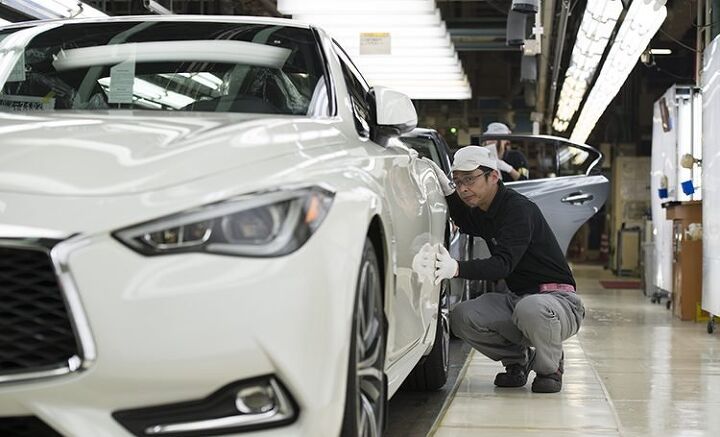
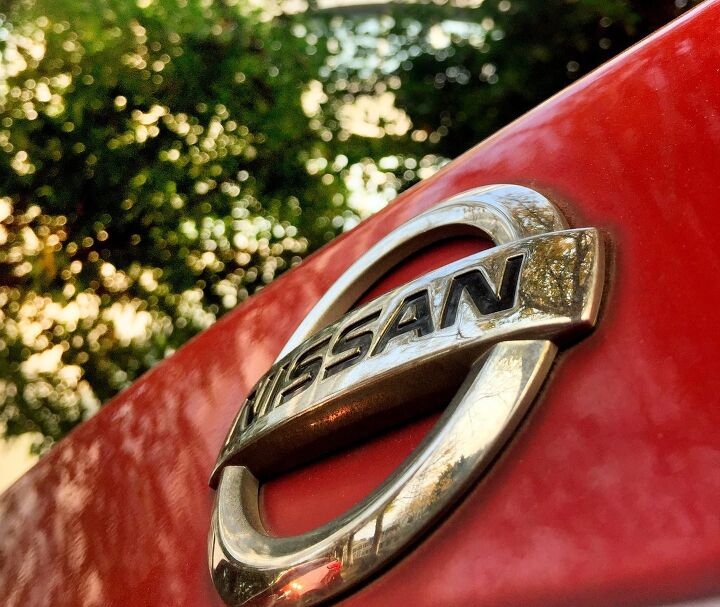
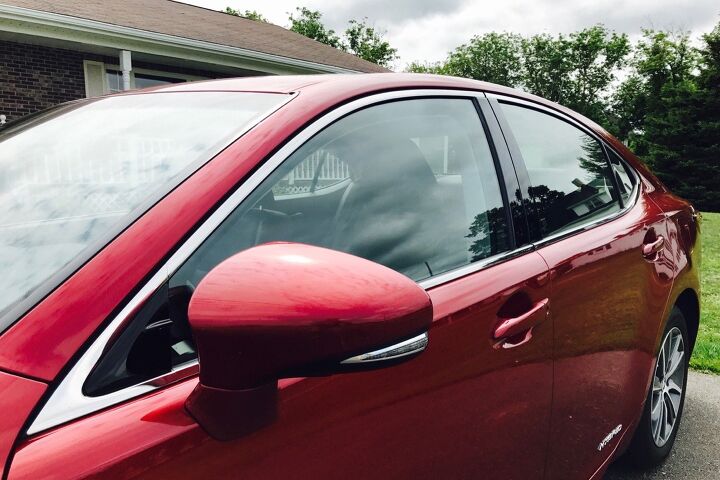

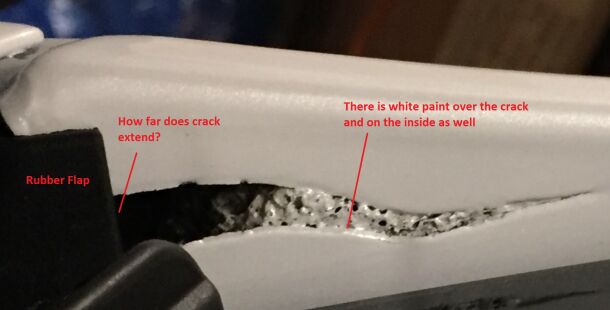


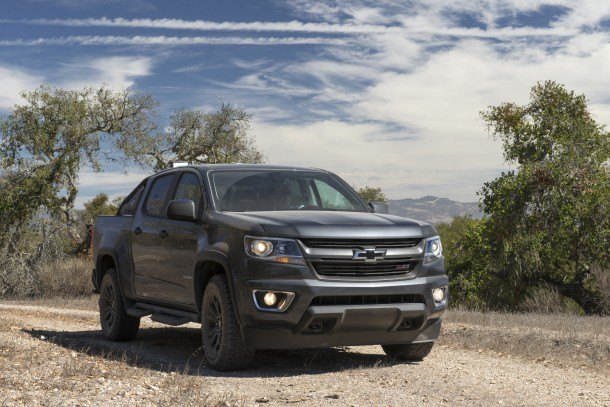



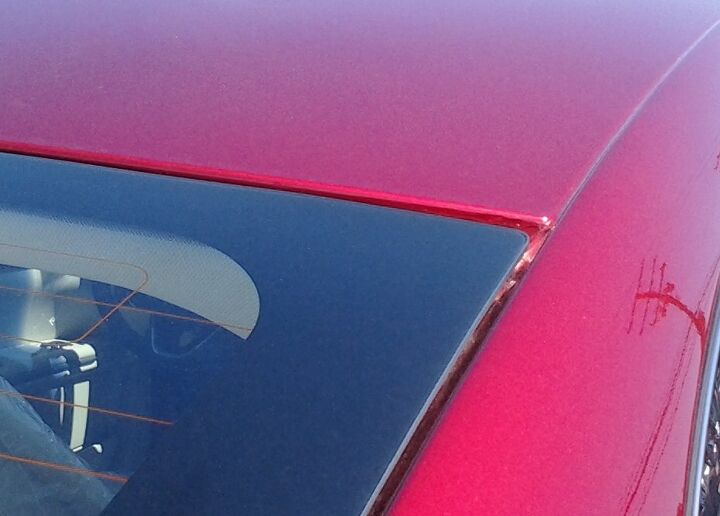











Recent Comments